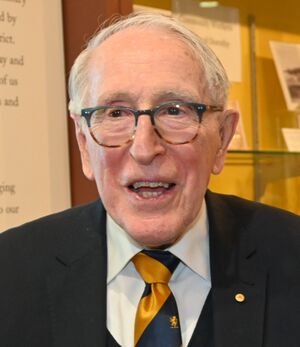Graeme Clark
Biography
Blake S. Wilson and Graeme Clark are the two living people who have made the most vital contributions to the development of the modern cochlear implant (CI), a stunning achievement that many world-renowned experts thought was impossible. The invention transformed otology and provided the first effective medical treatment for severe-to-complete losses in hearing. To date, over a million people have received a CI and the benefits have been amplified throughout society. The cochlear implant is a transformative technology that allows children to be mainstreamed into regular schools, adults to have a wide range of job opportunities, and all recipients to connect in new and important ways with their families, friends, and society at large.
The benefits go well beyond enabling spoken communications. The modern CI is the most successful neural prosthesis developed to date, in terms of efficacy and number of people helped, and has become the springboard for the development of other neural prostheses such as those to restore motor function for paralyzed persons or to restore senses other than hearing. In addition, the modern CI has enabled research on brain plasticity in humans. Among the results from this research was the identification of a critical period for the acquisition of spoken language up to age 3 in congenitally deaf children. These and other findings have immense implications for brain development. They underscore the importance of providing CIs as soon as possible after diagnosis of deafness in an infant or young child. They also reveal improvements in learning and education for adults and children. The work of Wilson and Clark has improved the lives of millions of people; spawned an industry with more than $3 billion in annual revenues; enabled a new line of scientific research; and greatly facilitated the development of other life-changing neural prostheses.
Clark is Laureate Professor Emeritus and Member of The Graeme Clark Institute for Biomedical Engineering, University of Melbourne, Melbourne, Australia and was the co-recipient of the 2024 IEEE Medal for Innovations in Healthcare Technology for "contributions to the development of the modern cochlear implant".
